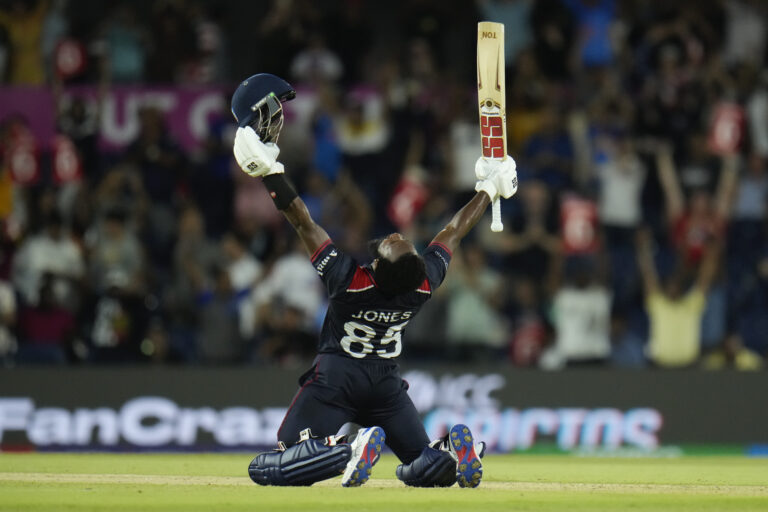Sports Betting and the Science of Probability Theory
Play99exch, 11xplay: Probability theory is fundamental in sports betting as it helps bettors assess the likelihood of various outcomes. By understanding probabilitybettors can make more informed decisions when placing bets. In simple termsprobability represents the chances of an event happeningranging from 0 (impossible) to 1 (certain).
In sports bettingprobability is often expressed through oddswhich indicate the potential payout based on the likelihood of a specific outcome. For instanceif a team has odds of 2.00 to win a matchit implies a 50% probability of winning. Bettors can use these odds to determine the potential risk and reward associated with a bethelping them make strategic choices.
Understanding Odds and Implied Probability
When it comes to sports bettingunderstanding odds is crucial for making informed decisions. Odds represent the likelihood of a particular outcome occurring and are presented in different formats such as fractionaldecimalor moneyline. Implied probability is the conversion of these odds into a percentagegiving bettors an idea of the perceived chances of an event happening according to the bookmaker.
For exampleif the odds on a team winning a game are 2.00 in decimal formatthis implies a 50% chance of that team winning. It’s important for bettors to grasp the concept of implied probability as it can help in assessing the value of a bet. If a bettor believes the actual probability of an outcome is higher than the implied probability calculated from the oddsthen there may be a betting opportunity worth considering.
Factors to Consider When Calculating Probability in Sports Betting
When calculating probability in sports bettingit is vital to consider the past performance of the teams or athletes involved. Historical data can provide valuable insights into trendstendenciesand potential outcomeshelping bettors make more informed decisions. Analyzing factors such as recent formhead-to-head resultsinjuriesand weather conditions can all contribute to a more accurate assessment of probability.
Another important factor to consider is the context in which the event is taking place. Different sportsleaguesand competitions have unique characteristics that can impact the probability of certain outcomes. Factors like home-field advantagetravel schedulesreferee biasand playoff implications should all be taken into account when calculating the likelihood of a particular result. By considering these contextual factors alongside statistical analysisbettors can develop a more comprehensive understanding of the probability involved in sports betting.
The Role of Statistics in Making Informed Betting Decisions
When it comes to making informed betting decisionsstatistics play a crucial role in providing valuable insights into the performance of teams and players. By analyzing statistical data such as team performanceplayer statisticshistorical match resultsand trendsbettors can make more informed decisions when placing their bets. Statistics help bettors identify patternstendenciesstrengthsand weaknessesallowing them to assess the probability of different outcomes more accurately.
Moreoverstatistics enable bettors to evaluate the reliability of odds offered by bookmakers and assess whether there is value in a particular bet. By comparing statistical probabilities with the implied probabilities reflected in the oddsbettors can identify discrepancies and opportunities for profitable bets. Statistics also help bettors understand the distribution of outcomes and the likelihood of different scenariosempowering them to make strategic decisions based on data-driven analysis rather than mere intuition or gut feeling.
• Statistics provide valuable insights into team and player performance
• Analyzing historical match results helps identify patterns and trends
• Helps assess the probability of different outcomes more accurately
• Evaluates the reliability of odds offered by bookmakers
• Identifies discrepancies and opportunities for profitable bets
• Understands distribution of outcomes and likelihood of scenarios
How to Apply Probability Theory to Different Types of Bets
When it comes to applying probability theory to sports bettingit’s essential to tailor your approach based on the type of bet you are considering. For examplein simple win/lose betsunderstanding the implied probability of the odds offered by bookmakers can give you insight into the likelihood of a particular outcome. By comparing these implied probabilities to your calculated probabilitiesyou can identify value bets where the odds offered are higher than the actual likelihood of the event occurring.
In more complex bets like parlays or teaserswhere multiple selections need to be correct for a payoutbreaking down the probabilities of each individual event is crucial. Using tools like combinatorial mathematics can help you calculate the overall probability of winning these types of bets. Additionallyconsidering factors like correlation between bets and the impact of push results can further refine your betting strategy based on probability theory.
The Importance of Bankroll Management in Relation to Probability Theory
Effective bankroll management is a fundamental aspect of successful sports betting and is intricately linked to probability theory. Understanding the concept of bankroll management involves carefully allocating a portion of your funds for each bettaking into account the likelihood of different outcomes based on probability calculations. By employing sound bankroll management strategiesbettors can mitigate the risks associated with uncertain outcomes and sustain their betting bankroll over the long term.
Probability theory plays a crucial role in determining the size of bets and the allocation of funds within a bankroll management framework. As bettors assess the likelihood of different outcomes in a given sports eventthey can adjust their betting amounts accordingly to align with the perceived probability of success. By integrating probability theory into bankroll management decisionsbettors can make more informed and strategic choicesmaximizing their potential for long-term profitability in the volatile world of sports betting.
Common Mistakes to Avoid When Using Probability Theory in Sports Betting
One common mistake to avoid when using probability theory in sports betting is overestimating the accuracy of your predictions. While probability calculations can provide valuable insightsit’s important to remember that no prediction is foolproof in the world of sports. Factors such as injuriesunexpected performancesand external variables can all impact the outcome of a gamemaking it essential to approach betting with a level of caution and humility.
Another mistake to steer clear of is ignoring the concept of variance in your betting decisions. Variance refers to the natural fluctuations in outcomes that occur due to randomnessand it’s a crucial factor to consider when assessing probabilities in sports betting. By understanding and accounting for variancebettors can better manage their expectations and approach their strategies with a realistic perspectiveultimately leading to more informed and strategic betting decisions.
The Impact of Variance and Randomness in Betting Outcomes
Variance and randomness play a significant role in determining the outcomes of sports bets. In sports bettingvariance refers to the fluctuations in results that occur over timewhile randomness pertains to the unpredictable elements that can influence the final result of a game or event. Understanding and accounting for variance and randomness is essential for bettors to make informed decisions and manage their expectations effectively.
The impact of variance and randomness in betting outcomes can lead to both winning streaks and losing streaks for bettors. It is crucial for bettors to recognize that even with a solid understanding of probability theory and statistical analysisthere is always an element of uncertainty in sports betting due to variance and randomness. By acknowledging and accepting these factorsbettors can develop a more realistic perspective on their betting results and make adjustments to their strategies accordingly.
How to Adjust Betting Strategies Based on Probability Theory
To adjust betting strategies based on probability theoryit is crucial to continually reassess and refine your approach to account for new information and changing circumstances. One key aspect is to regularly review your past bets and outcomes to identify patterns and areas for improvement. By analyzing your past performance in relation to the probabilities you assigned to each betyou can gain insights into the effectiveness of your strategy and make necessary adjustments.
Moreoverstaying disciplined and sticking to your predetermined probabilities is essential in adjusting betting strategies. It can be tempting to deviate from your initial assessments based on gut feelings or external factorsbut it is vital to trust in the probabilities you have calculated. By maintaining consistency in your approach and not letting emotions dictate your decisionsyou can ensure a more systematic and informed betting strategy that is grounded in probability theory.
Using Data Analysis and Modeling to Enhance Predictions in Sports Betting
One key aspect of enhancing predictions in sports betting is through the use of data analysis and modeling. By leveraging historical datatrendsand statistical analysisbettors can gain valuable insights into the potential outcomes of sporting events. Through the application of various models and algorithmssuch as regression analysis and machine learning techniquesbettors can develop more accurate predictions and make more informed betting decisions.
Data analysis also allows for the identification of key factors that may influence the outcome of a sporting event. By analyzing variables such as player performanceteam statisticsand game conditionsbettors can better assess the probabilities of different outcomes. Additionallydata modeling enables bettors to quantify uncertainties and risksleading to a more robust betting strategy that accounts for various scenarios and potential outcomes.
What is the importance of probability theory in sports betting?
Probability theory helps bettors understand the likelihood of different outcomes in sports eventsallowing them to make more informed decisions when placing bets.
How can understanding odds and implied probability improve my betting strategy?
By understanding odds and implied probabilitybettors can identify value bets and avoid overpaying for bets with low expected returns.
What factors should I consider when calculating probability in sports betting?
Factors such as team performanceplayer injuriesweather conditionsand historical data should be considered when calculating probability in sports betting.
How does statistics play a role in making informed betting decisions?
Statistics help bettors analyze past performancestrendsand patterns to make predictions about future outcomes in sports events.
How can I apply probability theory to different types of bets?
Probability theory can be applied to various types of betsincluding moneyline betspoint spread betsand over/under betsto determine the likelihood of different outcomes.
Why is bankroll management important in relation to probability theory?
Bankroll management helps bettors protect their funds and minimize losses by determining the appropriate amount to bet based on their calculated probabilities.
What are some common mistakes to avoid when using probability theory in sports betting?
Common mistakes include overestimating the accuracy of predictionschasing lossesand ignoring key factors that can influence outcomes in sports events.
How does variance and randomness impact betting outcomes?
Variance and randomness can lead to unexpected outcomes in sports eventsmaking it important for bettors to account for these factors when making betting decisions.
How can I adjust my betting strategies based on probability theory?
By continuously evaluating and adjusting their strategies based on new information and data analysisbettors can optimize their chances of success in sports betting.







